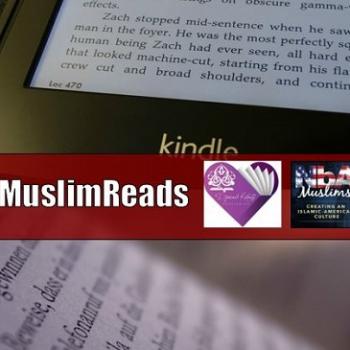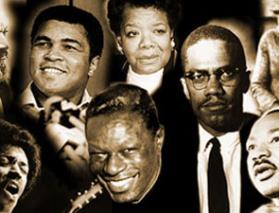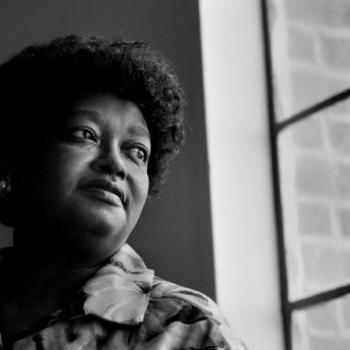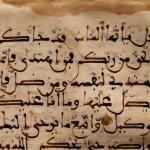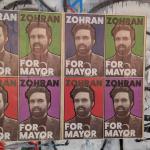
By Jamilah Thompkins-Bigelow
I have a strange — sometimes estranged — relationship with my ethnic background. Being the product of a West African immigrant mother and an olive-complexioned Black[1] father and raised as an American Muslim, it is a polyamorous relationship that cycles through breakups and makeups as I accept, embrace, reject and reconcile with all the identities that make up me.
While I could never escape my Black identity in the U.S. (even if I wanted to), I have always been able to escape my African identity, and it shames me to admit that I sometimes have. I have pretended there’s nothing between us so no one will know, then publicly displayed my affection for it in my times and spaces of ethnic pride.
In this marriage of confusion, I struggle to take a name. Do I just call myself African? Black? American? Hyphenate it? What is my name?
It’s hard to take names that others disclaim.
At home, I was Hajjah Jamilah, named after my maternal grandmother. As is common in my mother’s culture, I was named to share even the title Hajjah[2] of my namesake, who was reputed for strength. My mother sensed that I, too, was strong from the day I was born in a labor that almost killed her and me. Such a girl is one who will fight, who will tear the world apart to make space for her.
An Arabic name, Hajjah was sung out by my mother whenever calling me as only a Mandingo woman can: “Hajjaaa-a-ah! Hajjaah Jameeeeelah!” As a child, unsure which was my first name and ashamed of such an ethnic sound, I was thankful Hajjah was hidden on my birth certificate by being placed in the middle. And, outside my home, I became simply Jamillah (with a double L to rhyme with Vanilla) or Mill for short.
Why tear the world apart with my name?
For a brief time, I foolishly tried calling myself “mixed.” As a young, light-skinned woman, I discovered there is a pride in being considered mixed. It meant an escape from being African, and escape from being only Black. “You’re beautiful,” people would tell me. Then ask, “What are you mixed with?”
Saying “African” was never enough. They would prod until they could find some non-African heritage. I learned they did not confer beauty to the African parts of my mixture. Through slavery, my paternal ancestry had a great deal of the African raped out of it. Untold numbers of African women, then mixed Black women were raped by white enslavers and then told that their progeny of mulattoes, quadroons, and octaroons were more attractive, more superior and more intelligent because of it.
They were more than “just Black.” I rebelled against this narrative and eventually learned to love Blackness. Just. Blackness.
Paradoxically, sometimes that love means divorcing the distinctly African aspects of my identity.
My childhood (and adulthood) is filled with Black people who encouraged me to walk out on my African-ness. Black kids called me “African booty scratcher” when my mother’s thick accent exposed me. Even during my school’s Kwanzaa celebration, when we were told to wear “African clothing,” this meant my classmates flung flimsy strips of fake kente cloth around their necks while I was told I looked “too African” in my carefully wrapped lappa from Guinea.
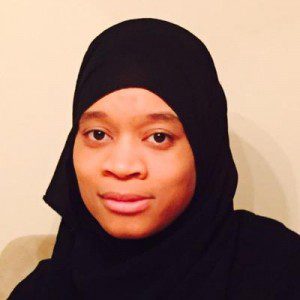
The smirks of Black teachers seemed to concur. These and later experiences taught me that American Blackness can feign an admiration of Africa while never wanting to be fully and openly committed to her. What’s in a name? Drop the African from your name and call yourself Black American. To be African, authentically and knowledgeably, is subversive.
It makes sense. The further the distance from African-ness, the closer one is to acceptability, to assimilation, to whiteness. And I am assimilated. Yet, some part of me hears “American” as my name and feels incomplete; I call myself “Black American” and feel duplicitous — I feel like an accomplice in the whitewashing of a name.
Would I feel the same if my mother wasn’t from the Motherland? Like many Black Americans, my mouth has learned how to make the Motherland disappear by not even saying her name. Into the emptiness, I speak with the voice of an educated Black American woman — soulful, but not too soulful; rhythmic, but never committing to the beat; sing-songy and airy, somewhat like the speech of white women, except a catch in the throat prevents the words from taking flight.
Still, sometimes the nasally mother-tongue slips into my accent, filling the gaps with a sound soothing and grating at the same time. Some part of me strains to hear the high-pitched, delicate sounds of the kora harp — always playing in the background of my mind — even as I turn up the booming iambs of a Hip Hop music that stands up and protests.
Hip Hop is a music of a people who know that they must tear the world apart to make space for them. They are my people too. I am Black.
And yet, the womb that bore me belongs to a woman with an African name. A name shared by griots that sing the songs and tell the stories of my people. They are my people too. I am African. I whisper, say, then shout it. I must shout it. I must reclaim it. I must never forget.
Jamilah Thompkins-Bigelow is an educator with extensive experience in teaching, curriculum design and teacher training. Through this professional work and her time with the University of Pennsylvania’s Educational Leadership program, she has become especially skilled in organizational development, strategic planning for school improvement and the use of technology and other innovative practices to enhance instruction. Jamilah is also a 2016 MuslimARC- Muslim Anti-Racism- AMEL Fellow.
[1] While most Africans are undeniably black, Black in capitalized form will be used in this article to specifically describe the descendants of Africans who were enslaved and brought to North America.
[2] A title given to a woman who has made the hajj or pilgrimage to Mecca.
Stay in touch! Like Altmuslim on Facebook:



